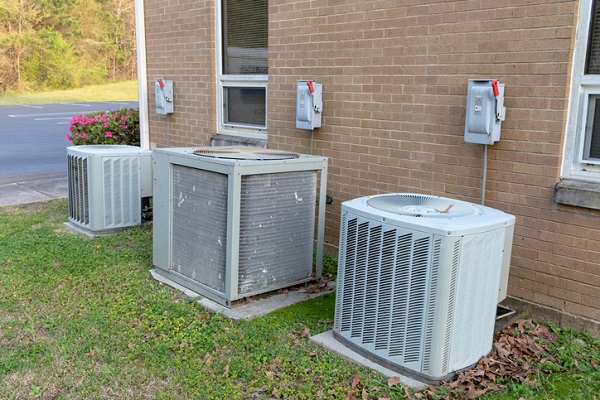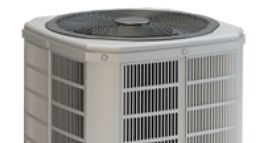The Environmental Protection Agency (EPA) recently banned an important component of many air conditioning units—R-22 refrigerant, otherwise known as Freon®. As of January 1, 2020, the EPA no longer allows the production or import of Freon in the United States. What does this mean for you, and what can you do to adapt?
Do I Need a New Air Conditioning Installation?
No.
Fortunately, this ban doesn’t mean you necessarily need a brand-new air conditioning installation. But it may make it more difficult and expensive to get an air conditioning recharge, which is when a technician tops off your air conditioner’s coolant (refrigerant). The coolant (Freon) is what makes the air cool in your home.
If your air conditioner was manufactured before 2010, it likely uses Freon. Every so often, your air conditioner requires a refrigerant recharge. The ban does not force HVAC technicians to stop using Freon altogether. If they can find an existing supply, they can use it to recharge air conditioners.
That said, the Freon ban will make it much more difficult for air conditioning contractors to obtain Freon to recharge your air conditioner. Once it’s gone, it’s gone for good. And some air conditioning contractors refuse to carry Freon anymore, either due to cost or because of negative environmental impacts.
If I Have Freon, Can I Still Get an Air Conditioning Repair?
Yes.
Generally, if you need an air conditioning repair, air conditioning contractors can still do so. The main issue that you’ll have is related to the refrigerant itself, rather than the entire unit. For example, if your air conditioner’s fan burns out, the fact that it uses Freon won’t affect the air conditioning repair process.
However, if you develop a refrigerant leak and your air conditioner uses Freon, the air conditioning repair process may get a little more complex. If your air conditioning contractor carries Freon, they may be able to fix it as usual. But they may also recommend either replacing your unit or retrofitting it.
Replacing and Retrofitting Units
Replacing your air conditioner is fairly straightforward. It can also be extremely expensive. With a Home Service Plan from 2-10 Home Buyers Warranty (2-10), it’s possible to get your air conditioner replaced for a much smaller Service Fee. But your 2-10 Home Service Plan would only cover a replacement if repairs weren’t possible and the problem was caused by routine wear and tear.
The other option you’d have is retrofitting your air conditioner to accept alternative refrigerants. This is a much easier and less expensive option than replacing your entire system. For more information about the process of retrofitting your air conditioner, you can read our guide to retrofitting.
In some cases, a 2-10 Home Service Plan can help reduce the cost of an air conditioning retrofit. If your air conditioner were to break down from routine wear and tear, and the air conditioning contractor 2-10 sent determined that you’d need a retrofit to repair the unit, your Home Service Plan could cover that cost. This could save you time and money not only now but also down the line, since retrofitted units are easier to fix.
Can’t I Just Recharge With a Similar Refrigerant Instead of Getting a Retrofit?
Absolutely not. In fact, knowingly mixing refrigerants is illegal. It’s impossible to recycle and properly dispose of mixed refrigerants. The whole point of the Freon ban is to protect the ozone layer (Freon damages the ozone layer). Mixing refrigerants defeats the purpose and can get you in trouble, too.
Besides, mixing refrigerants can damage your air conditioner. Alternative refrigerants require different parts to move through your system properly. But a quality air conditioning contractor can install these parts in a matter of days, not weeks or months.
Do Alternative Refrigerants Work as Well as Freon?
Yes.
There are many alternative refrigerants you can choose from, and they work just as well as Freon. For example, a common alternative refrigerant is MO99. MO99 uses the same kind of oil as Freon, which makes retrofitting for MO99 easier for air conditioning contractors.
Another alternative refrigerant, R-410A (Puron), is common in many air conditioners manufactured after 2013. However, it’s likely that this refrigerant will be banned starting in 2025.
These alternative refrigerants do the same thing Freon does but without the detrimental effects of Freon. Though the government ban will make Freon more difficult and expensive to source, alternative refrigerants are a great solution.
Whether your air conditioner uses Freon or not, make sure you keep maintaining it! Proper maintenance is important to extending this expensive system’s life span. And before that inevitable day when your A/C breaks down, consider a 2-10 Home Service Plan. A 2-10 Home Service Plan can protect expensive systems and appliances from unexpected breakdowns caused by routine wear and tear, making protecting your home more affordable.









